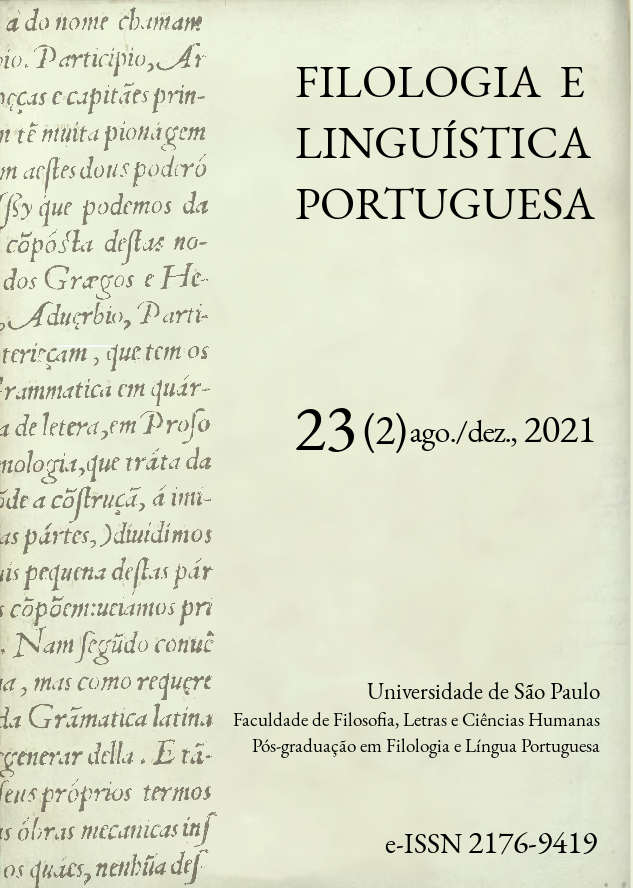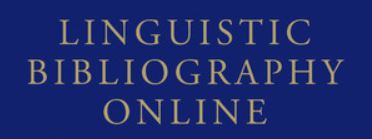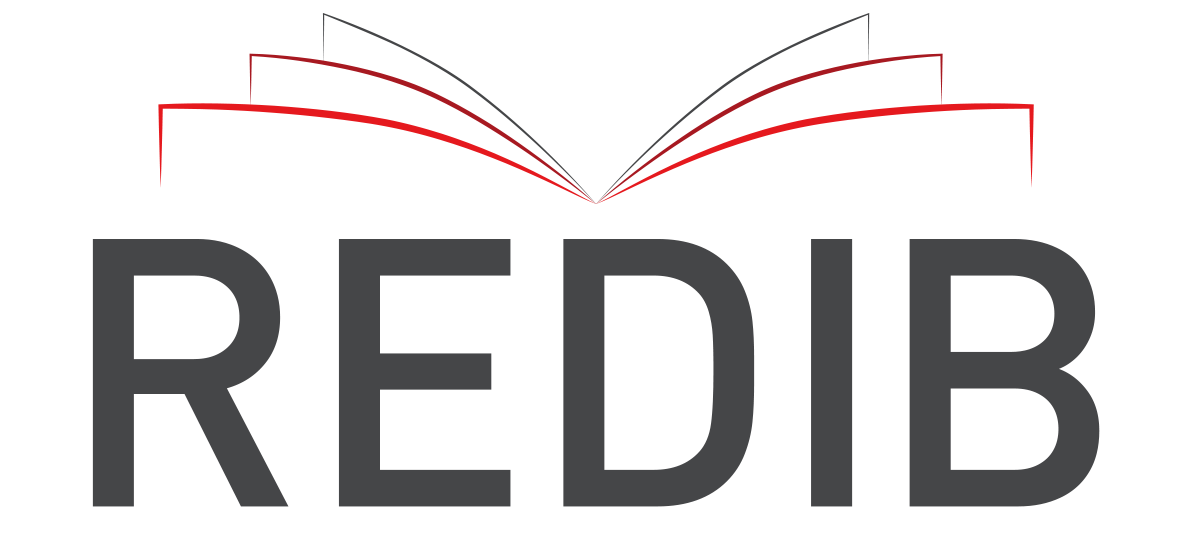The logical foundation of the Greek Grammar normativism and its relationship with the absense of the innovation and linguistic change taked as a theoretical study object
DOI:
https://doi.org/10.11606/issn.2176-9419.v23i2p283-299Keywords:
Normativism, Greek Grammar, Innovation and linguistic change, MetaphysicsAbstract
The main goal of this paper is to show, in a historical background, that the normative character, largely known, of the tradicional grammar in his greek version is not only due to the work of preservation of the classical texts. This task was actually, taking Aristotle as the first systematizer of the philosophical knowledge of his period, preceded by the search of a language able to hold the ontological task of the metaphysics. The attempt by Aristotle to eliminate the ambiguity and intentionality aiming a kind of accurate philophical language and the foundation of metaphysics in a time when the study of language wasn’t yet established as an autonomous theory discouraged the innovation or the linguistic change as a legitimate study object.
Downloads
References
Aristote. Organon, Tricot J, traducteur. Paris: Librairie Philosophique J. Vrin; 1962. (Tomes 1 à 6).
Aristote. Métaphysique. Duminil MP, Jaulin A, traducteurs. Paris: Flammarion; 2008.
Aristote. Éthique à Nicomaque. Tricot J, traducteur. Paris: Éditions Les Échos du Maquis; 2014a. (v,1,0).
Aristote. De l’interprétation. Tricot J, traducteur, Paris: Éditions Les Échos du Maquis, 2014b. (v, 1,0, janvier).
Aubenque P. Le Problème de l’être chez Aristote. Essai sur la problèmatique aristotélicienne. Paris: Presses Universitaires de France; 1962.
Aubenque P. Concepts et catégories dans la pensée antique. Paris: Librairie Philosophique J. Vrin; 1980.
Berwick R, Chomsky N. The biolinguistic program: the current state of its develop-ment. In: Di Sciullo AM, Boeckx C, editors. The biolinguistic enterprise. New per-spectives on the evolution and nature of the Human Language Faculty. Oxford: Ox-ford University Press; 2011. p.19-41.
Brentano F. Psychology from an empirical standpoint. London: Routledge; 1995 [1874].
Castro S. Três formulações do objeto da metafísica de Aristóteles. Rio de Janeiro: Contraponto; 2008.
Chomsky N. News horizons in the study of language and mind. Cambridge: Cam-bridge University Press; 2000.
Courtine JF. Note complémentaire pour l’histoire du vocabulaire de l’être. In: Aubenque P, éditeur. Concepts et catégories dans la pensée antique. Paris: Librairie Philosophique J. Vrin, 1980.
Davidse K, Vandelanotte L, Cuyckens H. Subjectification, intersubjectification and grammaticalization. Berlin: De Gruyter; 2010.
Delamarre A. La notion de ptôsis chez Aristote et les Stoïciens. In: Aubenque P, éditeur. Concepts et catégories dans la pensée antique. Paris: Librairie Philosophique J. Vrin; 1980.
Gilson E. L’être et l’essence. Paris: Librairie Philosophique J. Vrin; 1948.
Gumperz J. Language and social identity. Cambridge: Cambridge University Press; 1982.
Heidegger M. L’être et le temps. Boehm R, Waelhens A, traducteurs. Paris: Gallimard; 1964.
Honneth A. Luta por reconhecimento. A gramática moral dos conflitos sociais. São Paulo: Editora 34; 2003.
Hopper P, Traugott E. Grammaticalization. Cambridge: Cambridge University Press; 1993.
Ildefonse F. La naissance de la grammaire dans l’antiquité grecque. Paris: Librairie Philosophique J. Vrin; 1997.
Imbert C. Phénoménologies et langues formulaires. Paris: Presses Universitaires de France, Epiméthée; 1992.
Jaeger W. Paideia: The ideals of Greek culture. Oxford: Oxford University Press; 1986 [1936]. (Vol. 1).
Lalande A. Vocabulaire technique et critique de la philosophie. Paris: Presses Univer-sitaires France; 2010.
Lyons J. Introdução à lingüística teórica. Mattos e Silva RV, Pimentel H, tradutores. São Paulo: Ed. Nacional / Ed. da Universidade de São Paulo; 1979 [1968].
Oliveira M. A Ontologia em debate no pensamento contemporâneo. São Paulo: Pau-lus; 2014.
Pasquali G. Storia della tradizione e critica del testo. Firenze: Le Monnier; 1952.
Pfeipper R. History of the classical sholarchip from the beginnings to the end of the Hellenistic age. Oxford: Clarendon Press; 1968.
Platon. Phèdre. Chambry E, traducteur. Paris: Flammarion; 1964.
Platon. Cratyle. Chambry E, traducteur. Paris: Flammarion; 1967.
Stein D, Wright S. Subjectivity and subjectivisation. Cambridge: Cambridge Universi-ty Press; 1995.
Traugott E, Dasher R. Regularity in semantic change. Cambridge: Cambridge Univer-sity Press; 2005.
Vitral L. A inovação linguística: subjetificação e luta por reconhecimento. Revista de Estudos da Linguagem. 2012;20(1):65-98.
Vitral L. Expressividade e frequência de uso: aspectos pragmáticos e cognitivos da gramaticalização. Revista de Estudos da Linguagem. 2015;23(1):91-125.
Vitral L. Gramaticalização e gramática gerativa. Fundamentação, o problema men-te/corpo e domínios de validade. Campinas: Editora da ABRALIN; 2021.
Weeinreich U, Labov W, Herzog M. Empirical foundations for a theory of language change. In: Lehmann W, Malkiel Y, editors. Directions for historical linguistics - a symposium. Austin, TX & London: University of Texas Press; 1968. p. 95-199.
West M. Studies in the text and transmission of the Iliad. München: K.G. Saur; 2001.
Downloads
Published
Versions
- 2021-12-30 (3)
- 2022-07-05 (2)
- 2022-07-02 (1)
Issue
Section
License
Copyright (c) 2021 Lorenzo Vitral

This work is licensed under a Creative Commons Attribution-NonCommercial 4.0 International License.
Copyright is transferred to the journal for the online publication, with free access, and for the printing in paper documents. Copyright may be preserved for authors who wish to republish their work in collections.






















